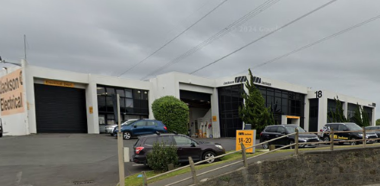Commercial Lease – What Every Tenant Needs to Know before Signing
Signing a commercial property is one of the biggest financial commitment a business can make, sometimes eclipsing labour costs. Get it wrong, and you could face unexpected costs, restrictions, or even legal headaches. Whether you're negotiating a new lease or renewing an existing one, it’s essential to understand the key terms before committing. This guide breaks down the critical factors every tenant should consider—so you can secure a lease that works for your business, not against it.

Is Leasing and Renting Commercial Property the same?
When we are talking about the formal contractual document, we usually talk about a commercial property lease for longer term arrangements and renting for short-term arrangements such as pop-up shops or co-working spaces. But in everyday business language we often use “rent” informally when talking about the expense and use rent and lease interchangeably in conversation.
Lease Period and Rights of Renewal
A lease period is the number of years and months that your business will be obliged to pay rent for the use of the premises. If the period is too long, you may have to continue to pay rent long after the business has ceased operating or moved to a larger premises. If the period is too short, then you will be looking for a new premises before you are ready to move.
Rent reviews allow for changes to the rental cost. Check how often reviews will be undertaken. Check what method they will use, CPI indexing, flat rate, fixed percentage, independent assessment.
A right of renewal allows you extend the lease period under similar conditions but usually has a rent review built in to allow the landlord to adjust the amount for market conditions. A 3x3 lease is more flexible for the tenant than a 9-year lease, because at the end of each of the 3 years they can decide not to renew.
Permitted Use
The lease will define the business activities that are permitted on the premises and what limitations or restrictions. Sometimes the limitations are to support neighbouring tenancies. For instance, preventing two hamburger outlets next to each other. Or allowing office parking to be used for restaurant patrons after 5:30pm and weekends.
You should also check your local Council regulations around signage, business licences for your industry, waste management, opening hours, use of outdoor spaces in front of your premises and noise. This is particularly important for hospitality businesses, but also health and beauty and industrial production.
Subletting or Assignment
Subletting - If you want to bring in another business to help pay the rent initially, this can help you with rental costs. You do need to ask the landlord for consent first.
Assignment – assigning the lease to a new tenant also needs the landlord’s consent. Even if you are selling your business to the new tenant. We have seen a few business sales fall over recently, because they haven’t secured the lease assignment or the remaining lease period was too short.
Rental Costs and Outgoings
Commercial leases aren’t always the same rent each month. Some leases have a percentage rent calculation, which means that a percentage of sales is charged periodically on top of the base rent. This typically happens in malls. You may also have marketing levies and business association levies.
A commercial lease is different from residential, as the tenant is liable for costs in addition to rent. Operating expenses (Opex) often includes rates, building insurance, administrative costs, building management, repairs and maintenance. It’s worth getting an explanation of what’s included in opex upfront, to avoid surprises.
Financial Incentives and Key Money
Rent free period – A Landlord may offer a rent-free period to give you access to the building to set up before you start trading.
Contribution to Fitout – This is where a landlord offers to reimburse you all or some of the cost of fitting out the building. It reduces your capital cost.
Guarantees – You may be asked to provide a personal guarantee as additional security for the landlord, as either a director or shareholder of the company. This means that if the business defaults on its rent or other obligations, the landlord can make a demand on the guarantor. You should get legal advice to understand the scope of the guarantee and what it means for you and your personal assets.
Key Money – This is a fee you pay to the manager, landlord or current tenant to secure a lease, generally in a desirable area. It is not the same as a bond, as bonds are refundable at the end of the tenancy. Consider it as part of your rental cost. Usually it is spread across the term of the lease.
Maintenance and Repairs
As a commercial tenant, you are usually responsible for the maintenance and repairs of the building interior you occupy, and the landlord for the structural repairs. But check your contract, particularly if there are shared spaces with other tenants.
When you exit your tenancy, you are usually responsible to “make good” the property, which involves returning the property to the state it was in when you first leased it. This may involve doing the actual work of removing fittings and painting, or it may involve a financial settlement with the landlord. As you approach the final year of your lease, it worth setting funds aside for making good the property. A large proportion of the costs will not be tax-deductible because it is capital in nature, but not depreciable. It is worth asking the landlord if they want to keep any of the fitout before you remove it, because it will save you de-fit costs.
Consult with your Lawyer about Commercial Leases
You need excellent legal advice when you review your lease agreements before signing. They can explain terms that are in the agreement from your landlord that we haven’t touched on in this blog, such as access, demolition clauses. They can also advise you on what to add, remove or modify in the agreement to suit your business needs.
A well-negotiated commercial property lease can save you money, reduce risk and provide the flexibility your business needs to grow. Before you sign, take the time to seek professional advice, understand the terms and the financial commitment you are undertaking. Be prepared to negotiate either directly or through your lawyer, to prevent major headaches later. Whether you’re entering a new lease or renewing an existing lease, the lease terms need to work for the life of your business.
- Serena Irving
Serena Irving is a director in JDW Chartered Accountants Limited, Ellerslie, Auckland. JDW is a professional team of qualified accountants, business consultants, tax advisors, trust and business valuation specialists.
Download a PDF version here or contact the author by email. Like our Facebook page for regular tips.
An article like this, which is general in nature, is no substitute for specific accounting, legal and tax advice. If you want more information about the issues in this article, please contact your legal adviser or the author.

Contact Us
Office Location: 127 Main Highway, Ellerslie, Auckland 1051, New Zealand
Postal Address: PO Box 11053, Ellerslie, Auckland 1542
Phone: (09) 579 7096
Email: results@jdw.co.nz



